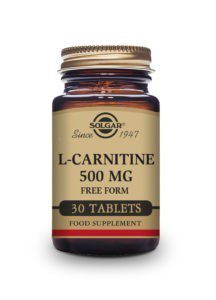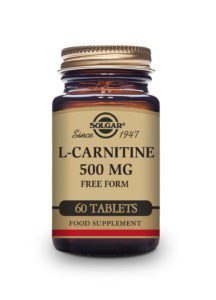





L Carnitine 500 mg Tablets Solgar
£21.19 – £39.96
L Carnitine 500 mg
L Carnitine 500mg Tablets Carnitine is actually a dipeptide – an amino acid. L-carnitine is a naturally occurring amino acid derivative that’s often take as a supplement.
It is use for weight loss and may have an impact on brain function. However, popular claims about supplements don’t always match up with the science.
This article examines the potential risks and benefits of L carnitine 500 mg supplements and explains how this nutrient functions in your body.
What Is L Carnitine?
L carnitine 500 mg is a nutrient and dietary supplement.
It plays a crucial role in the production of energy by transporting fatty acids into your cells’ mitochondria (1Trusted Source, 2Trusted Source, 3Trusted Source).
The mitochondria act as engines within your cells, burning these fats to create usable energy.
Your body can produce L carnitine 500 mg out of the amino acids lysine and methionine.
For your body to produce it in sufficient amounts, you also need plenty of vitamin C (4Trusted Source).
In addition to the L-carnitine produced in your body, you can also obtain small amounts by eating animal products like meat or fish (5Trusted Source).
Vegans or people with certain genetic issues may be unable to produce or obtain enough. This makes L-carnitine a conditionally essential nutrient (6Trusted Source).
Role in Your Body
L-carnitine’s main role in your body involves mitochondrial function and energy production (3Trusted Source, 15Trusted Source, 16Trusted Source).
In cells, it helps transport fatty acids into the mitochondria, where they can be burn for energy.
About 98% of your L-carnitin stores are contained in your muscles, along with trace amounts in your liver and blood (17Trusted Source, 18Trusted Source).
L-carnitine 500mg may help increase mitochondrial function, which plays a key role in disease and healthy aging (19Trusted Source, 20Trusted Source, 21Trusted Source).
Newer research illustrates the potential benefits of carnitine’s different forms. Which may be use for various conditions, including heart and brain diseases


















Reviews
There are no reviews yet.